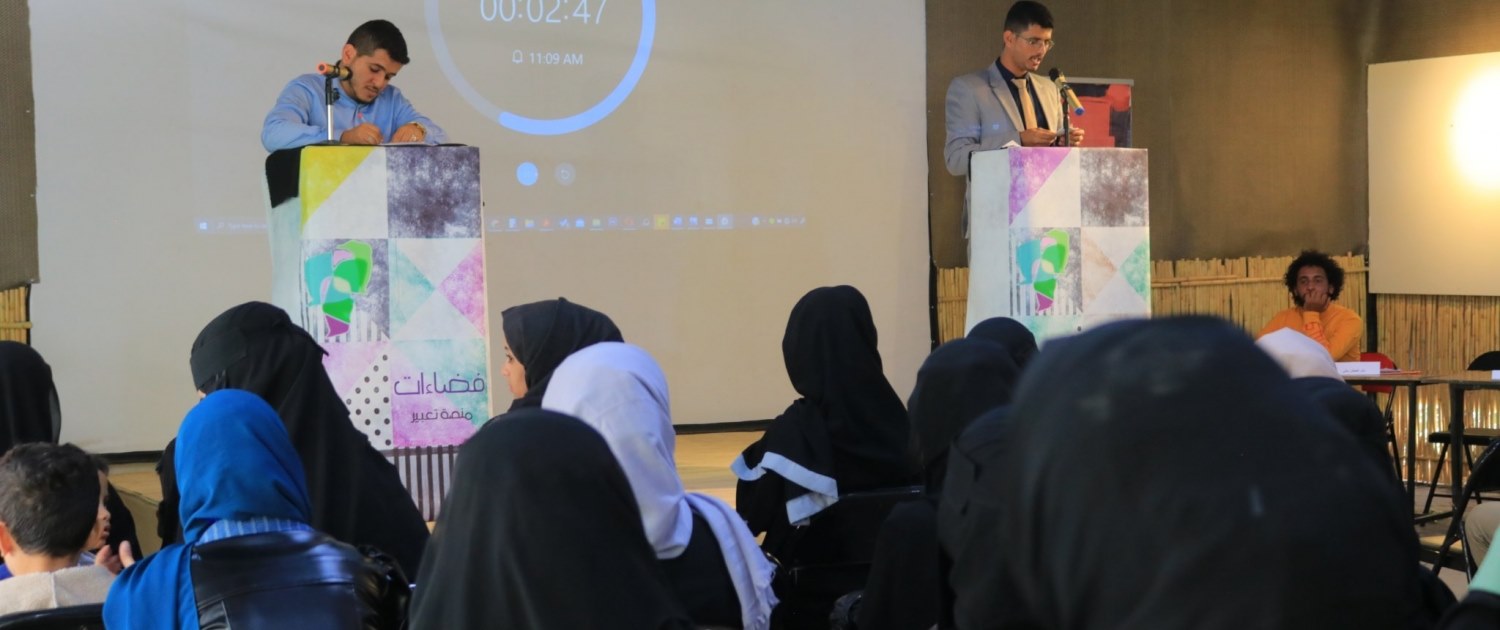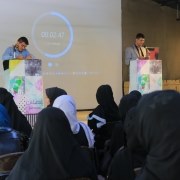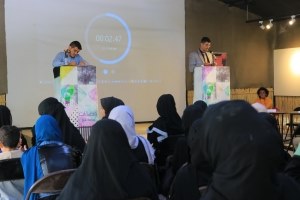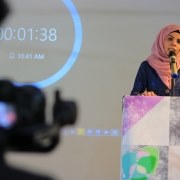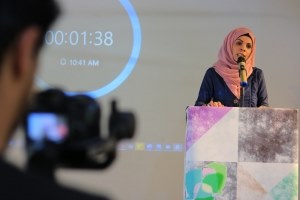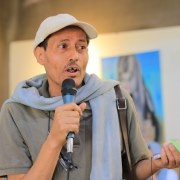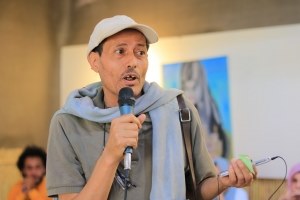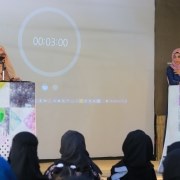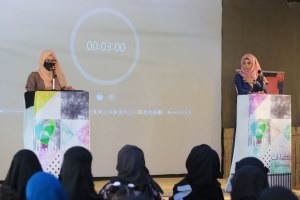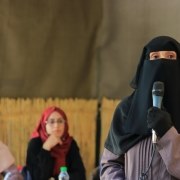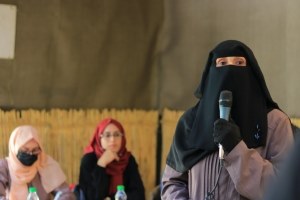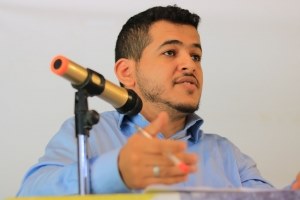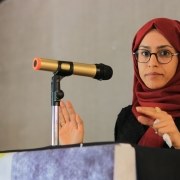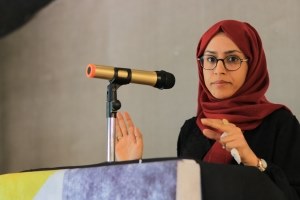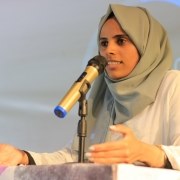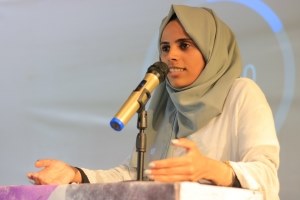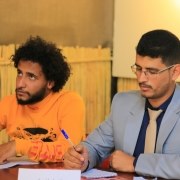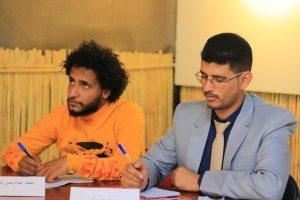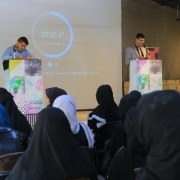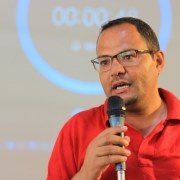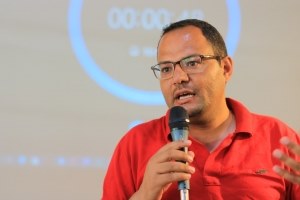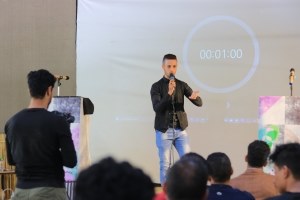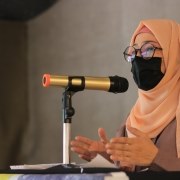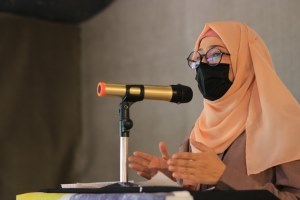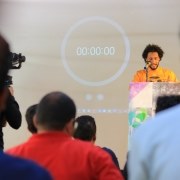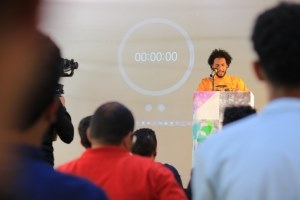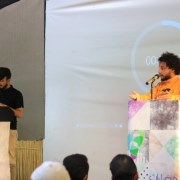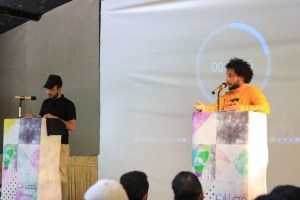On July 28, 2022, Basement Cultural Foundation held the fourth public debate in the activity of “Spaces” for this year. The debate dealt with the thesis: “Can Yemen secure its grain needs during the global crisis…for or against?”
In the debate, two teams faced each other, each of which includes four participants, as follows:
The team supporting the thesis:
1- Soheir Al-Sharabi
2- Hadeel Yahya Al-Mohammadi
3- Third speaker: Nader Qahtan Muthana
4- Muhammad Al-Areeqi
▪ The team opposing the thesis:
1- Fatima Al-Muntaser
2- Samira Al Jaradi
3- Mohamed Rafeeq Al-Maori
4- Numan Amin Numan
The debate was facilitated by, the media person, Ahmed Abdel Rahman Al-Samahi, who was a participant with the rest of the debaters in the training for this debate within the activity of “Spaces”.
Before the start of the debate, the result of the vote by the audience was as follows:
60.4% vote in favor of the thesis 39.6% vote against the thesis.
The debate witnessed four confrontations, in which each opponent faced his counterpart from the other team. Six separate interventions were devoted to the audience, in which the attendees participated in presenting their views and observations on the arguments presented during the debate.
First, the team supporting the thesis demonstrated the high agricultural capabilities that Yemen possesses to overcome the current grain crisis worldwide. The team explained that these capabilities can be activated by returning to the cultivation of grains and its derivatives on a large scale, depending on the climatic and environmental benefits of Yemen, which allow this cultivation to flourish, with the presence of fertile soil on large areas and the geographical location near the oceans, which is exposed to stable rainfall. Also the amazing climatic diversity in Yemen, which allows the cultivation of more than one type of grain. The team supporting the thesis cited the ancient and long successful history of Yemen in self-sufficiency in grain up to the beginning of the twentieth century, as evidence of the existence of agricultural capacity and capabilities. The team supporting the thesis, reviewing one of the studies published by the Yemeni Ministry of Planning and International Cooperation in 2021, confirmed that about 85% of the wheat consumed in Yemen is locally produced and not imported, which means the country’s ability in the event of increased support and activation of wheat cultivation to reach 100% and cover all Local needs, and that this can be done by providing seeds and solar electricity generators at low prices to farmers. The team confirmed that Yemen has already begun to work on the ground in activating self-sufficiency in grain through a systematic plan launched by the state to support the cultivation of grain in recent years.
On the other hand, the group opposed to the thesis called for adherence to realism, and stressed that it does not oppose Yemen’s ability to advance grain cultivation to the maximum degree, but rather that the difference lies in saying that this is possible at the present time, for the current grain crisis is severe in the world, and it will definitely not wait This crisis until we begin a large process of development of agriculture, which may take years.
In addition to what was said, the opposing team demonstrated the inability of the local production of grains at present to cover the high demand for grain in Yemen, for several reasons, the most important of which are the ongoing economic deterioration and wars, in addition to the existence of obstacles in the cultivation process itself, including the desire of farmers themselves to grow qat instead of wheat because Its profits are double, in addition to drought, desertification and turbulence in the rate of rainfall in recent years, between severe scarcity for several months, which caused people to pray more rain, and among other months of heavy rain whose torrents destroy farms and sweep away crops. The team also questioned
In what the team supporting the thesis said that 80% of the local consumption of grain comes from locally produced grain, and the team opposing the thesis talked about statements and governmental and international studies that say that the real percentage is 10%, while 90% is the percentage of imported grains from abroad. The team opposing the thesis clarified that there has indeed been an increase in grain production in Yemen in recent years, as the increase reached 2%, but this, first and foremost, cannot be compared with the high population growth rate in Yemen recently, nor can it be considered an encouraging number in light of the crisis. International stifling in grains now.
After the end of the confrontations between the two teams, and to determine the winning team in the debate, the debate facilitator asked the audience to cast their votes in the (post-vote) and the result was as follows:
■ Supporting thesis team: 55.5%
Losing 4.9% of the vote in the tribal vote result
▪ The team opposing the thesis: 44.5%
An increase of 4.9 additional votes to the result of the tribal vote
Thus, the team opposing the thesis was declared the winner after it managed to change the number of votes in its favour, from 39.6% of the votes before the debate, to 44.5% of the votes after the debate.


